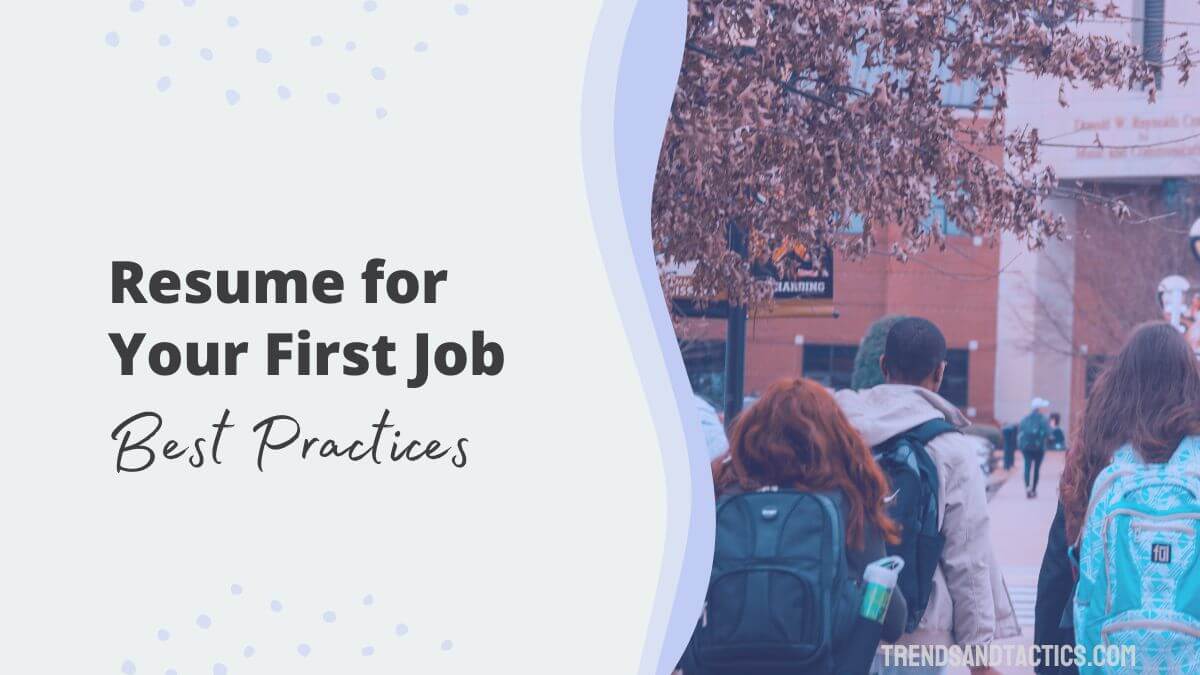The workforce is rarely as wild as it’s been since the beginning of 2020.
From massive layoffs to workers quitting in a huge tidal wave without two weeks’ notice: it can be a difficult time to start working, especially if you’re still wondering, “do you need a resume for your first job?”.
Here are the answers to the biggest questions new workers have, from whether a resume needed for first job applicants – to how you can show your value.
What’s the Purpose of a Resume
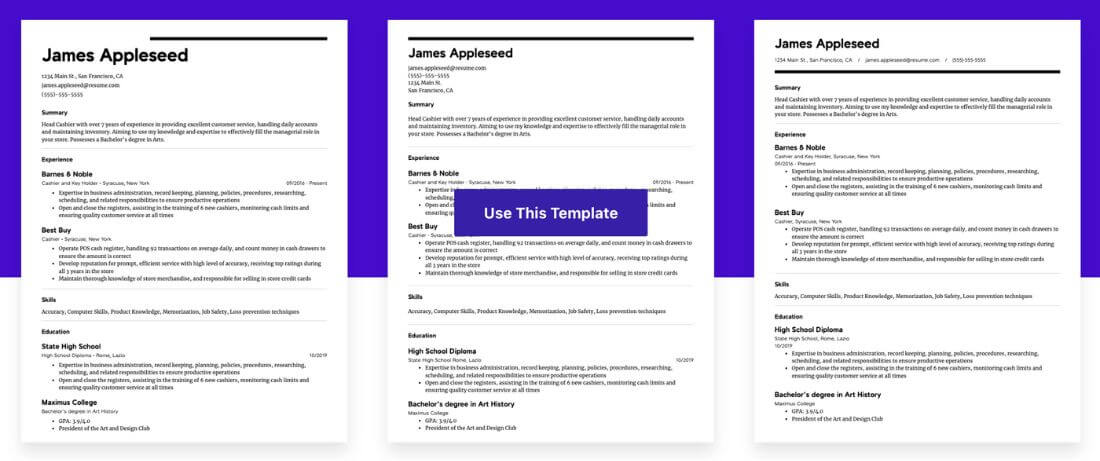
Every resume is an important document that helps you land a job, especially when combined with these tips for finding a job.
Many well-prepared job applicants have more than one resume, catering to what they offer based on the type of work they’re applying to.
If you’re new to the workforce, this can feel overwhelming.
But don’t worry, you’re not alone.
Even seasoned job hunters can be unsure about what to include on their resumes.
In general, a resume should introduce a potential employer to you, your work ethic, your history, and any goals you have for their company.
Even if someone already has a job, it’s vital that they keep their resume up to date because it can help them secure raises, get new jobs, or ensure the loyalty of their clients.
If you’ve never worked, you can still use this to your advantage, even if you’re nervous about the ‘how’ of it all.
If you’re hunting for your first job, you can start your search with these jobs for MBA graduates without experience or these top jobs that hire immediately.
Tactic for Success
Avoid overdoing your resume and putting too many graphics. If you spend too long trying to make it look snazzy, employers will have difficulty finding the information they’re looking for, which means they may pass you over.
Do you need a resume for your first job?
So, do you need a resume for first job without having any experience?
The short answer is – yes.
Although you may hope they’ll take you at face value, there’s a lot more than a resume includes than just your work history.
This introduces employers to who you are as a person and puts your name on the table as an option.
Of course, a nearly empty resume can also point out how much is missing from your work history.
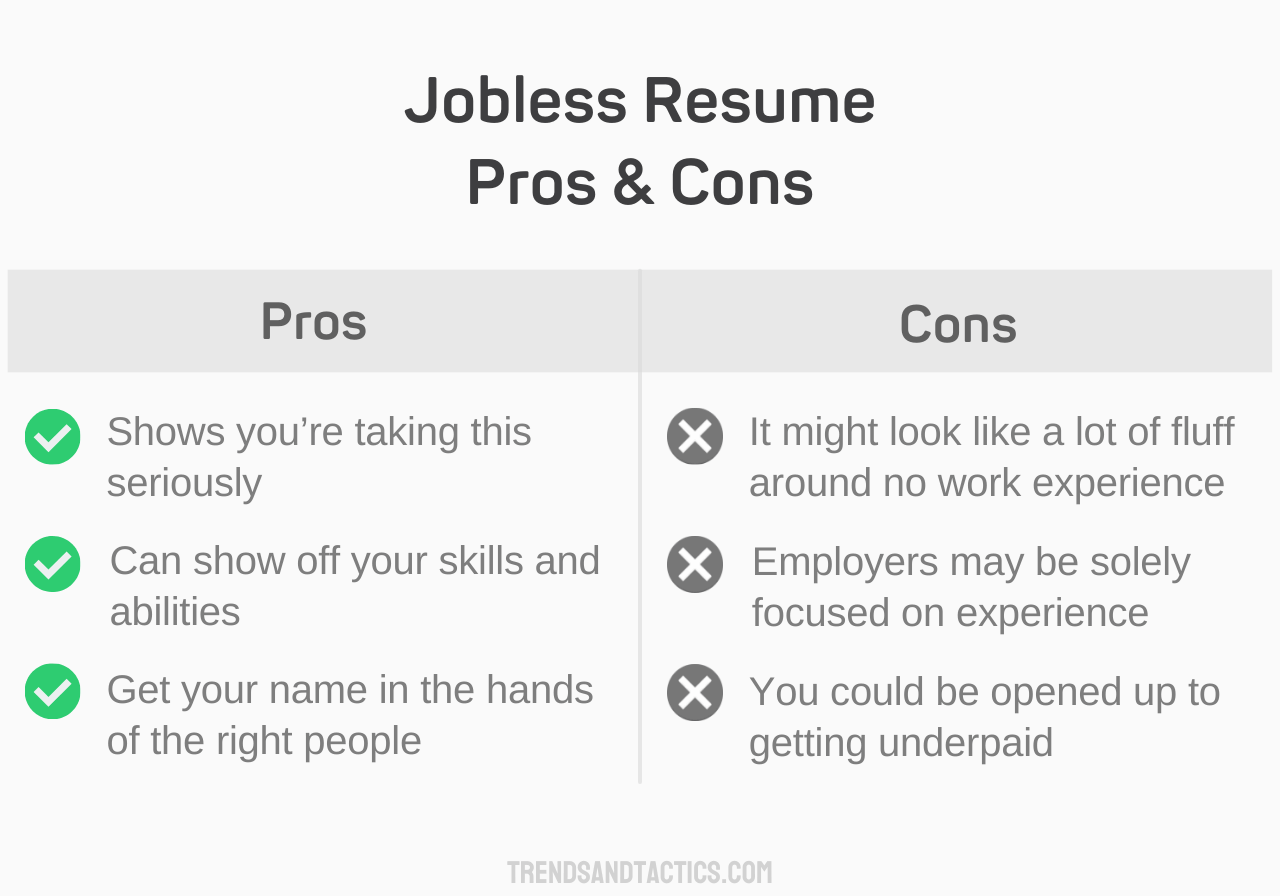
The best thing you can do if you have no work history is to be honest about what you’re capable of, your history of working in teams, and your pay rate.
You can expect to get paid less than more experienced workers: but at least you’ll have your first job for your next resume.
Trend on the Rise
Only 2% of applicants score interviews for the jobs they apply to, because nearly 42% of resumes don’t meet skills requirements. Companies care more about your abilities than your work background, so it’s vital that you show them what you’re capable of.
What should a resume include?
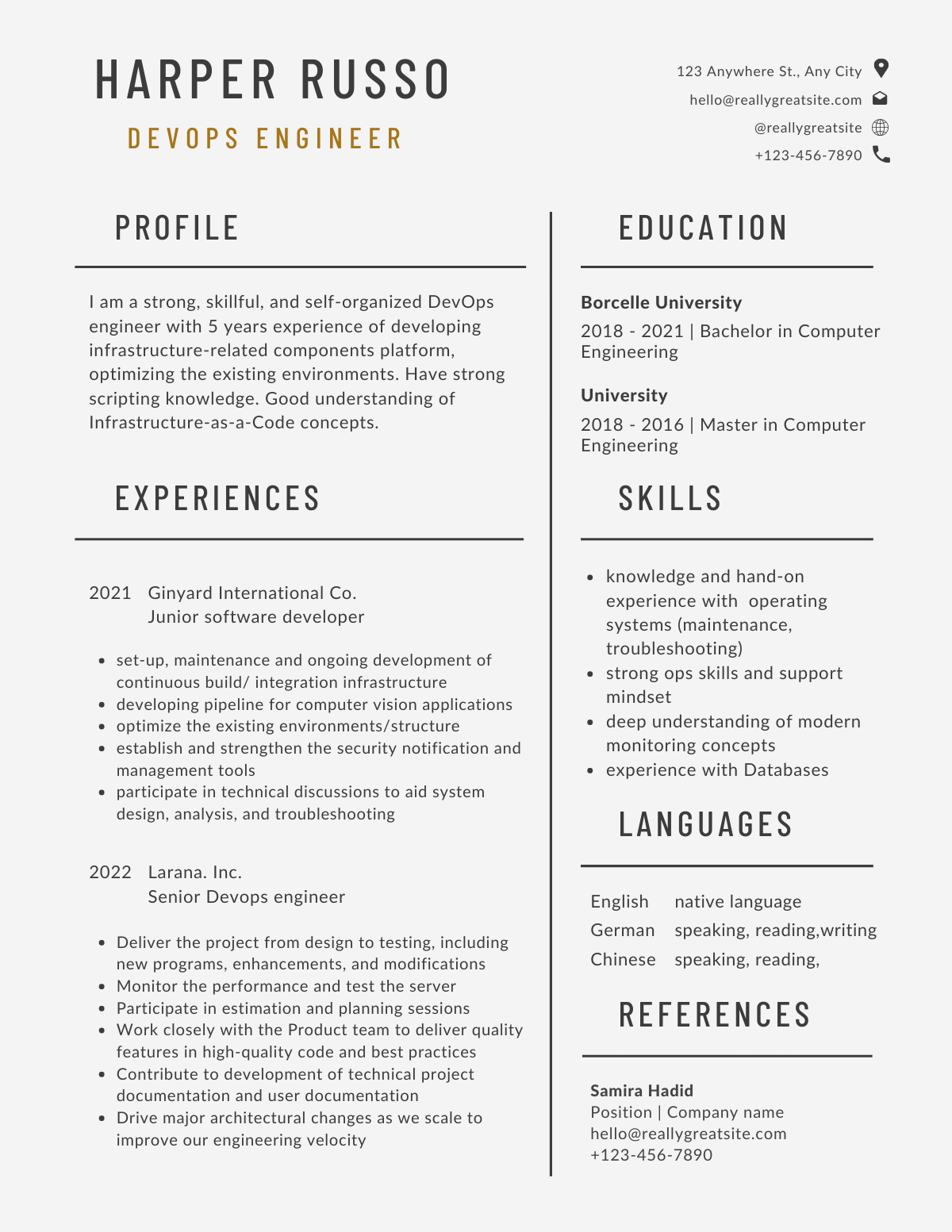
Creating a resume can feel overwhelming. If it’s your first job, you probably have even more questions.
Luckily, there are creative ways to build out a resume, even if you don’t have traditional job experience yet.
To stand out from the competition further, you may consider one of these top paying degrees if you’re searching for a problem solving job that requires further education.
Items to Include on a New Worker Resume:
- Clubs and Teams – Are you a member of any clubs or teams that require you to be on time and work as a team? Include it on your resume.
- Character References – Are there people who can vouch for your work ethic? Avoid family members.
- Volunteer Work – Volunteer work requires you to be able to stay on schedule and complete tasks.
- Relevant Coursework – Did you take home economics, and you’re applying at a restaurant? Include it.
- Computer Skills – Being skilled with computers is an advantage.
- Any Extra Languages You Speak – If you speak, read, write, or understand any languages beyond English, put it on your resume.
- Working for Family Business – Even if you never collected a paycheck, if you served or completed work for a family business, put it on your resume.
Label each section clearly, and explain in less than two sentences each why every item can be useful to your future employment with the company you’re applying to.
If you don’t have the history to include one of these items, it’s okay to leave it out.
Tactic for Success
Don’t lie or try to stretch the truth beyond your actual abilities. If you only completed a couple of lessons on Duolingo, don’t tell possible employers that you’re bilingual: when they eventually find out you’re lying, they may fire you or lower your pay.
How can I promote my abilities with no work history?
Promoting your abilities can be complicated if you’re new to job hunting! Luckily, there are plenty of ways to show off your skills and good character. Consider some of these options.
Get Great Character References
Character references can give you a huge lead amongst applicants. Many job seekers use fake references, or fake numbers, to try and avoid awkward or bad calls.
Because of this, it’s a better idea to try and get the best references you can.
This can mean teachers, coaches, and anyone else who was in authority over you or worked at your side on a team who will talk positively about you to an employer.
Network and Make Connections
Knowing the right people is often the best way to get a job. Although we’d like to think that most jobs are won on skill or merit: being able to make connections and network is often the easiest way to get the job.
This gets your foot in the door, introduces them to your personality, and lets them begin to have faith in you.
It can be hard to become friends with business owners, so instead, get to know employees and hourly workers to get into good social groups!
This will give you the chance to connect and have an inside person to get you into the company. Many businesses prefer to hire based on employee referrals.
Aim to Impress Based on Job Type
If you’re applying for a video editing job, include a link or QR-Code to a reel that shows off your fantastic editing skills.
If you’re applying for an illustration job, make sure to include your portfolio with your resume to show that skill trumps experience.
Although you might feel weird about being this showy, for creative jobs, it works.
Trend on the Rise
Although 90% of employers would prefer work experience: an astounding 60% of jobs are found through networking. If you can get your name out there instead of trying to lie about your work history, you can still get a great job.
What Mistakes to Avoid on Resumes
Unfortunately: mistakes happen! Companies who are in the steps of hiring professionals are used to sifting through tons of terrible applications to find the few good ones.
Set yourself up for success, and avoid any of these problems when you’re creating your resume.
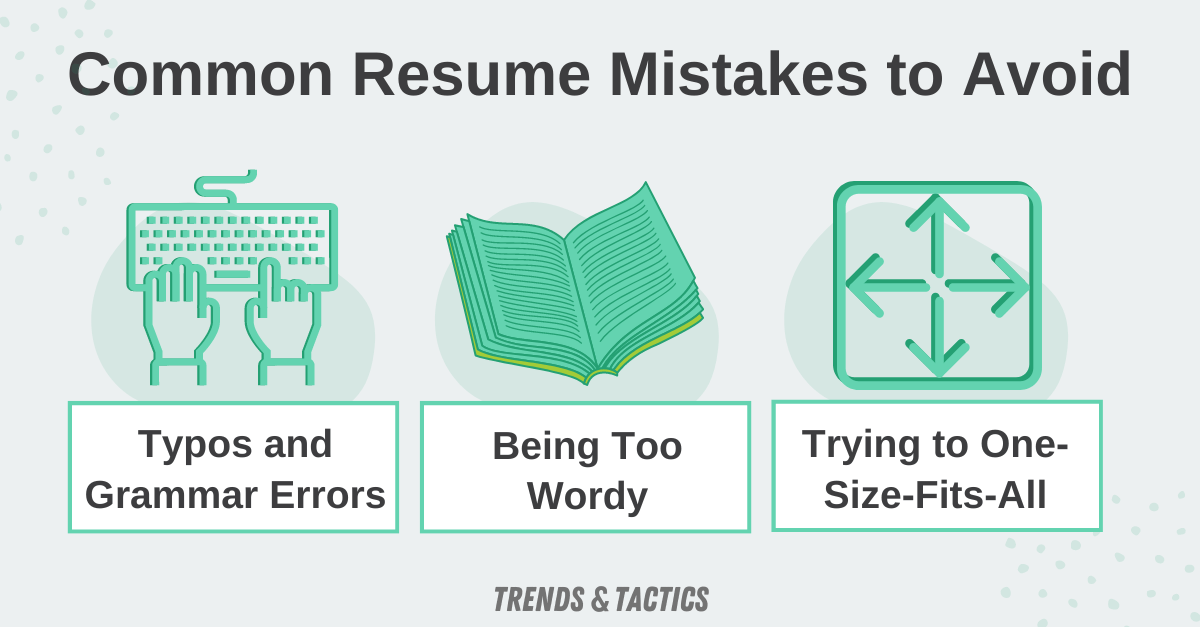
Common Resume Mistakes to Avoid:
- Typos and Grammar Errors – Get familiar with your resume, run it through a grammar and spelling checker, and make sure even your personal information is correct on it.
- Lies and Exaggeration – Don’t lie or exaggerate what you do or are capable of.
- Trying to One-Size-Fits-All – Customize your resume to different types of businesses so you can be more targeted.
- Being Too Wordy – Avoid writing thirty sentences where there should be a single sentence answer.
- Overdesigning Your Resume – Don’t make your resume look like a movie poster, keep it simple and to the point, so it’s not thrown out.
- Being Rude or Informal – Although it’s good, to be honest, if your honesty causes you to be rude or informal about a previous experience or company, remove it from your resume.
If you’re still nervous about your resume, have someone you trust look it over for you.
Not only will they be like a test-run, letting you know what catches someone’s eye and what looks bad on your resume: but they’ll also have fresh eyes that may more easily catch a typo or error.
Make sure that in formatting, you have your resume clearly labeled by section as well. If a company has an auto-pdf or doc reader, it often goes by section and searches for keywords.
If your resume is clearly labeled and filled out, this will allow their program to clearly read it over and hopefully pass yours along to the next step in the process.
Don’t jam your resume with keywords to game the system: if someone actually has to read it, the document needs to make sense.
Wrapping Up
Although it can feel like a resume is one of the most important things you could make: you’re worth more than that.
Show employers your value through other experiences being part of a team or showing up on time consistently.
Erin is a business teacher and mother of three. When she’s not in the classroom or fulfilling her obligations as an A+ hockey and lacrosse mom, she’s working on her latest article.
